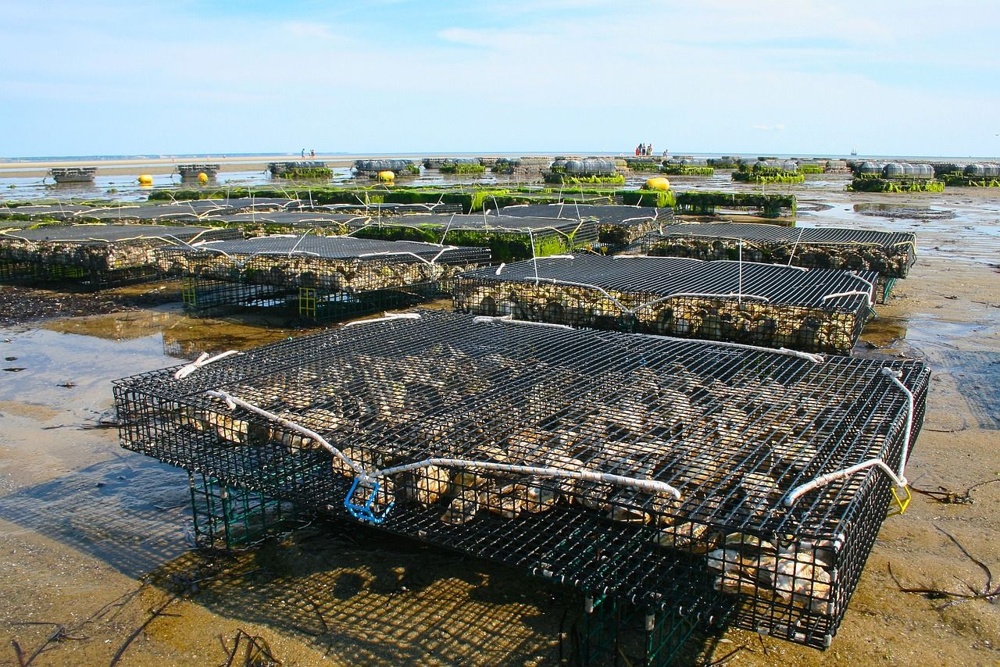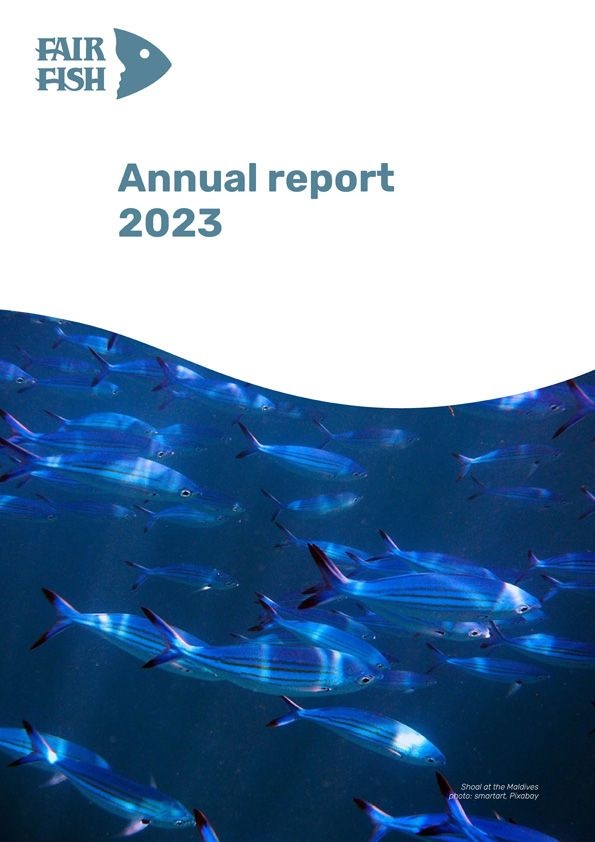News from fair-fish: July 2024
We are delighted to announce that we have a new president! We elected him unanimously at the last General Assembly on 22 May 2024. We were able to win Prof. Dr Ralph Schill, biologist and professor at the University of Stuttgart and Managing Director of aquatil gGmbH, for this important honorary position at fair-fish. Thanks to him and a strengthened board, we will continue to develop in the direction of Europe and do even more for the welfare of fish in fisheries and aquaculture.
Yours sincerely, Fausta Borsani, Executive Director fair-fish
Annual report 2024
Our work is still needed, even after 27 years since fair-fish was founded. The animals that we find as food on our plates are still "obtained" with too much suffering.
Although there has been a shift in awareness towards more animal-friendly husbandry for farm animals, this has not yet reached the creatures in aquaculture. In most aquaculture facilities, the principle of profit maximisation still applies without consideration for the needs of the animals. Even in fisheries, which according to the latest report by the Food and Agriculture Organisation of the United Nations (FAO) is still on the increase, we as a society are still faced with the problem of overfishing and illegal fishing, as well as fishing methods that cause enormous suffering to the animals. In most cases, the animals die without a clean anaesthetic and slaughter protocol. We are committed to improving the welfare of fish in breeding and fishing. If you are interested in our projects, download the new Annual Report 2023.
FAO report

Aquaculture overtakes wild catches in the production of fishes and seafood for the first time, according to the new report by the Food and Agriculture Organisation (FAO). The amount of farmed fish and seafood exceeded the amount of wild-caught fish and seafood in 2022. Aquacultures worldwide produced 94.4 million tonnes of aquatic animals in 2022. That is 51% of the aquatic animals marketed for consumption worldwide. Production is dominated by ten countries (China, Indonesia, India, Vietnam, Bangladesh, the Philippines, South Korea, Norway, Egypt and Chile), which supply 89.9% of the total. The report also shows the impressive figures for the increase in fish and seafood consumption worldwide: in 1961 this was 9.1 kilograms per person per year and by 2022 consumption had risen to 20.7 kilograms per person per year.
fair-fish is concerned about both the increase in aquaculture production and the increase in the consumption of fish and aquatic animals. Firstly, because in most cases farming is not species- and animal-friendly and is associated with a great deal of suffering. And secondly, because fishing is also very often not sustainable and certainly not free of animal suffering. Much less fish consumption, and if so, only from really good fisheries and farms, would be better for the animals and the environment.
Go to the FAO Report : Global fisheries and aquaculture production reaches a new record high.
Take part in the latest ALLY survey!
Would you like to donate to our work? If you can, we are very grateful for any amount.
Do you know someone who might be interested in our work? Please forward this newsletter and invite your colleagues and friends to join us.
